-
 Make the Miraculous Neem Oil a Part of Your Daily Life: Discover the Numerous Uses of Neem Oil and How It Can Give You a Radiant Skin, Lustrous Hair and Overall Health and Wellbeing! (2021)
Make the Miraculous Neem Oil a Part of Your Daily Life: Discover the Numerous Uses of Neem Oil and How It Can Give You a Radiant Skin, Lustrous Hair and Overall Health and Wellbeing! (2021)
-
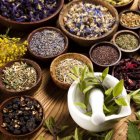 Acne: Causes and Remedies! Get Rid of Acne with These 10 Potent Home Remedies for Pimples!
Acne: Causes and Remedies! Get Rid of Acne with These 10 Potent Home Remedies for Pimples!
-
 Is Your Skin Looking Dull and Lifeless? Follow Our Skin Care Tips and Adopt These 5 Healthy Habits and Watch Your Skin Glow Vibrantly (2020)
Is Your Skin Looking Dull and Lifeless? Follow Our Skin Care Tips and Adopt These 5 Healthy Habits and Watch Your Skin Glow Vibrantly (2020)
Combating Flu: A Common but Troublesome Illness

Causes Behind Catching a Flu

There are a variety of reasons that are responsible for catching a flu. For instance, an imbalance in your body may occur owing to a mismanaged diet or unhealthy lifestyle, while other external causes like changing seasons, environmental pollutants, your psychological and mental state, not attending to natural urges or genetic factors may also lead to a flu breakout. Even though there’s a huge range of viruses that can lead to flu or common cold, the virus usually enters the body through the mouth, eyes or nose and spreads through droplets in the air when someone who’s sick sneezes, coughs or talks.
Prevention is Better Than Cure

One of the best ways of preventing seasonal flus is to get vaccinated annually and follow healthy habits that keep you away from sick people. Cover your cough and wash your hands often to stop the germs from spreading and preventing respiratory illnesses like the flu. You can also intake antiviral flu drugs. It is best to avoid sick people and maintain social distance. When sick, its best to stay at home and prevent the illness from spreading. Cover your mouth and nose to avoid spreading the germs when you talk, cough or sneeze. Use soap or an alcohol based hand rub to clean your hands. You should also avoid touching your eyes, nose or mouth, clean & disinfect frequently touched surfaces, get plenty of rest/sleep, drink plenty of fluids and eat nutritious food.
When to Seek Medical Attention

Most of you down with flu experience mild illness that typically runs for a week or two and in such cases going for a medical consultation may not be necessary. However, when you are at risk of complications, the flu can become life threatening. Cough, sore throat, runny or stuffy nasal passage, muscle aches, headache, fatigue, fever, vomiting, diarrhoea and the chills are the most common flu symptoms. However being down with flu shouldn’t affect your breathing, this may actually be something more serious like pneumonia. If you feel pain or discomfort in the chest or abdomen, it’s yet another sign you shouldn’t ignore. A flu can sometimes trigger a cardiac arrest or stroke in people with heart conditions. Some other signs of getting immediate medical attention include vomiting, pregnancy and asthma. If your symptoms reappear after subsiding, then it is time to see a doctor as well.
Indian Home Remedies for Flu
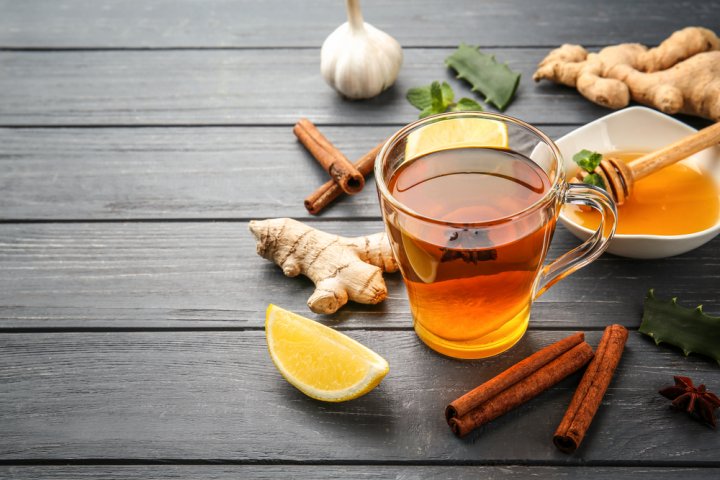
Use Kitchen Ingredients Effectively

In your kitchen you will find a treasure trove of spices that not only offer taste but have flu-fighting properties as well. For instance, in cinnamon and cloves, you will find potent antiviral, antibacterial, anti-inflammatory and analgesic properties that are far tastier and useful for combating flu.
Cinnamon infused water or tea can give a boost to your immune system owing to the presence of antioxidants like proanthocyanidins and polyphenols. It also helps reduce the chances of you contracting seasonal infections or respiratory diseases. Black pepper comes with antimicrobial properties that prevent chest congestion, respiratory infections and also boosts immunity. Then, there’s liquorice or mulethi, sucking on which can help relieve cough and it comes with anti-viral properties that help fight off flu and other ailments.
Make Use of Herbs and Ayurvedic Medicines
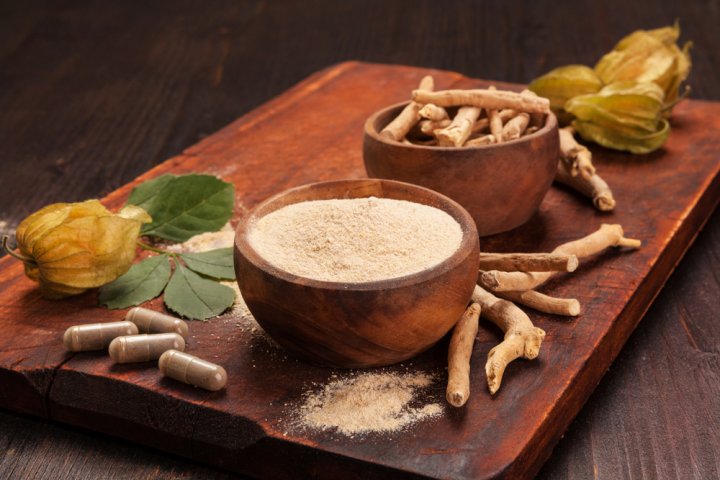
Ashwagandha, an adaptogenic herb not only reduces stress but is also known to boost your body’s immunity. It also restores stamina, energy and endurance that help fight the flu. Packed with nervine tonic benefits, it energises your body for the day and calms the overactive nerves for a restful sleep at night. 500 mg of the whole root consumed after meals can help you fight the flu.
There’s also astragalus which protects and supports the immune system, prevents upper respiratory infections, prevents cold, protects the liver, treats diabetes and lowers the blood pressure. Basil, though a summer herb, can still be used any time of the year to reduce fever and relieve cold/cough and flu symptoms. Horseradish or Indian muli is a spicy root that’s rich in vitamin C and includes two compounds, sulforaphane and isothiocyanates that help clear congestion and combat flu symptoms. Hyssop or jufa is a hairy grey herb that tastes like a mix of sage and mint and can be used to make antibacterial cleaning products, in addition to relieving flu, colds and other respiratory infections.
Consume Vitamins and Minerals

One of the most powerful antioxidants available, vitamin C not only fights free radicals and prevents oxidative damage to your cells, but it also plays a significant role in boosting immunity, relieving the body of all stress and infections. A healthy dose of fruits and veggies enriched with vitamin C will give you the much needed relief. In addition to being absolutely essential for your overall well-being, vitamin D works wonders for the immune system. With its disease fighting properties, vitamin D can help bump up your immunity to combat all kinds of infections. Getting optimum sun and eating sunshine vitamin rich food like salmon, sardines, egg yolks, etc. can help. A water soluble vitamin, vitamin B6 is helpful in over a 100 enzymatic reactions, brain development, slowing cognitive decline and the functioning of the nervous system. It also works with the immune system to ward off flu. Zinc and magnesium are also essential minerals that can help you combat flu naturally.
Add Probiotics to Your Diet

A kind of good bacteria, probiotics are similar to micro-organisms in the body that are considered healthy. Available in the form of yogurt or dietary supplements and other products like creams and suppositories, probiotics can not only prevent upper respiratory infections but also ward off flu. They boost immunity and inhibit the growth of harmful gut bacteria, as well as promote the production of natural antibodies. While, there are over a thousand strains of good bacteria in the gut, one of the most common probiotic strain is lactobacillus acidophilus which boosts immunity and helps those of you with lactose intolerance to digest dairy products better and improve overall digestion. It is good to get a variety of strains as each individual’s body has a different bacterial footprint and uses some bacterial strains better than the others.
Consume Soups and Other Healthy Food

When you come down with a cold or are suffering from flu, you tend to crave for packaged chips, cookies or soups and though they may taste heavenly, they are bad for your immune system, dehydrate the body and weaken the digestive system. When you're down with flu, there’s a common saying to go by – starve a cold and feed the fever. Having broth, a savoury liquid made of bones, meat or veggies on a simmer is rich in nutrients and when consumed as soup can hydrate the body, while the spices and meat juice can help relieve the congestion and sore throat. Chicken soup is known to increase the nutrient value with a healthy dose of blanched veggies and herbs. There’s garlic that fights the flu and reduces the chances of a relapse as well. Foods enriched in vitamin C like strawberries, tomatoes, broccoli, cauliflower or brussels sprouts and citrus fruits like orange and lemon, leafy greens like spinach and kale, and eggs are also good for fighting the flu.
Essential Oils are a Useful Remedy

Inhaling essential oils is one of the best ways to fight off flu, directly from the bottle or adding a few drops of oil to a handkerchief, a cotton ball or in a diffuser. Essentials oils can help clear your nasal passages, help you breathe better and sleep better. While lemon essential oil is good for clearing the sinuses and aids in steady breathing, peppermint reduces coughs, sinusitis and throat infections. Eucalyptus reduces fevers and fights viruses and chamomile relieves cold and flu symptoms. Other essential oils like lavender, thyme, tea tree, clove, cinnamon and rosemary have similar beneficial effects as well as other antibacterial and antiviral properties.
Do Salt Water Gargling

According to some popular research, nose drops and salt water gargling have been shown to reduce the average duration of the flu, and people who’ve used these methods were found to use less OTC medications or pass their infection to other family members in comparison to those who didn’t. A fairly natural, convenient and affordable home remedy, salt water gargling is a typical home treatment for relieving flu, sore throats, viral respiratory infections and other allergies and mild health imbalances. Proved to be effective in relieving infections, salt water gargling also prevents them from getting worse. All you need is water and salt and anyone over the age of 6 years can gargle easily.
Drink a Glass of Turmeric Ginger Tea
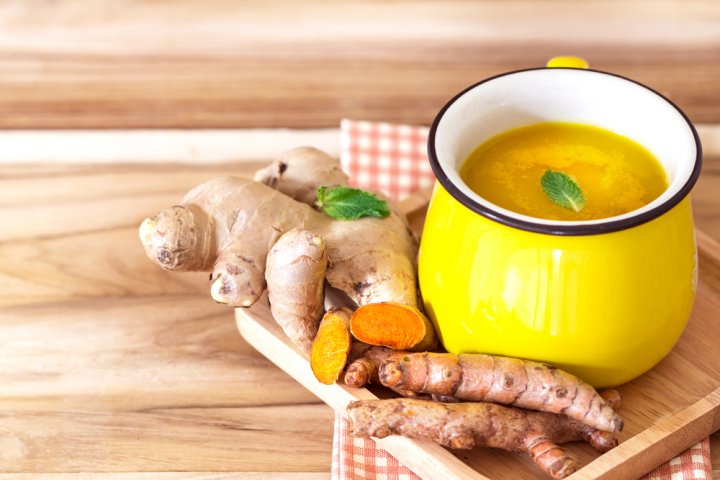
Anti-inflammatory and immune boosting herbal teas are what your body needs when sick and get healed naturally! Since flu tends to hit the entire family over a period of days or weeks, the herbal flu tea is good for everyone. Mineral rich, anti-inflammatory and immunity boosting, the flu combat herbal tea is typically made of 2 tbsp dried stinging nettle or urtica dioica, 1½ tbsp freshly diced ginger, 1 tbsp dried peppermint leaves, 1½ tsp ground cinnamon, ¼ tsp ground black pepper, ½ tsp ground turmeric and 32 oz boiled water. To make the herbal tea, all you need to do is add the nettle, ginger, peppermint, cinnamon, turmeric and black pepper to a loose leaf tea pot and fill it with the just boiled water, steep the liquid for about 5 minutes and then up to 10 minutes. The herbal tea is ready to be served with a slice of lemon, and some organic honey to taste. You can have this flu herbal tea liberally during the illness.
Honey

Albeit, it doesn’t cure or prevent the flu, honey has some other useful benefits to help you when you’re ill. For instance, having a hot cup of tea with honey can help soothe a sore throat or reduce irritating coughing bouts. Enriched with antioxidants, antimicrobial and antibacterial properties, honey boosts the immune system, fights against common cold and reduces chances of a future recurrence. Consuming honey regularly can be beneficial for your health, while a mix of honey and some sugar coated on slices of raw onions (kept overnight) and consumed early next morning can help ward off cold and flu.
Epsom Salt Baths
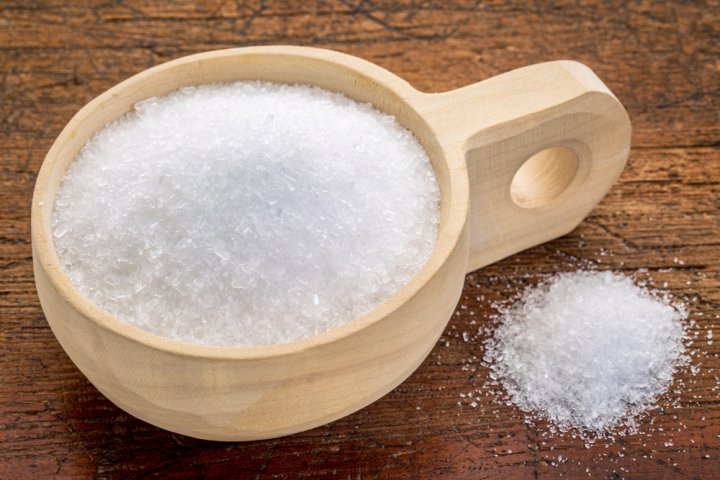
One of the most typical symptoms of a flu or cold is fever, which is the body’s way of protecting itself from viruses. Soaking in a hot tub can help increase the body’s temperature and bring about a slight fever that will boost your immunity and stop the cold virus from further reproduction. An Epsom salt hot bath with some essential oils can prove to be quiet relaxing, and detoxifying. A cup or two of Epsom salts, a cup of baking soda, 2 tbsp powdered ginger and ½ cup sea salt (optional) together in a 40 minute hot bath can help detoxify and help your skin absorb the minerals.
Bonus Tips: Quick Tips for Treating Flu in Kids

When there’s a change in season, and kids are indoors, interaction in greater numbers can inevitably lead to cold and flu. Usually, children under the age of 5 years are at a greater risk of catching cold and flu, and since these are viral infections, antibiotics won’t help in clearing up an infection. However, there are some things you can do to help your kids feel better, whilst their immune system is at work to combat the virus:
- Fluids – can keep the children hydrated and reduce the flu/cold symptoms and help them feel better. While the kids may not feel thirsty as such, and may be uncomfortable when drinking, it is important that you encourage them to drink fluids in plenty because dehydration can be serious, especially in kids under 3 months. If a child is breastfed, breastfeeding should be more frequent than usual, while the older kids can be given sports drinks, juices, broths, flat white soda or popsicles.
- Clearing Nasal Passages – using a cool mist humidifier can help break the mucus, while using saline nasal spray or drops can make it easier to blow the thin mucus or remove using a bulb syringe.
- Losing the Cough – is easier by giving honey as opposed to a cough medication, as honey is much safer and more effective for kids over a year old. Avoid giving honey to children younger than a year to prevent the risk of botulism.
- Rest – in plenty can always aid faster recovery. Dress the child comfortably and avoid loading him with extra layers or heavy blankets as the fever may make the child feel hot as it is. A lukewarm bath can help the child cool off and wind down before settling in for the night.
-
 Hair Fall: Causes, Home Remedies and Prevention! 10 Home Remedies for Hair Fall You Can Try Safely at Home!
Hair Fall: Causes, Home Remedies and Prevention! 10 Home Remedies for Hair Fall You Can Try Safely at Home!
-
 Looking for a Natural Way of Healing Your Body and Rejuvenating Your Soul? Check out the Top Books on Ayurveda to Discover and Adopt the Miracles of This Ancient System of Medicine (2021)
Looking for a Natural Way of Healing Your Body and Rejuvenating Your Soul? Check out the Top Books on Ayurveda to Discover and Adopt the Miracles of This Ancient System of Medicine (2021)
-
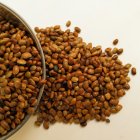 Introduce Your Family to the Multiple Benefits of Horse Gram: Check out Simple and Delicious Horse Gram Recipes and Make This Superfood a Part of Your Family's Regular Diet (2021)
Introduce Your Family to the Multiple Benefits of Horse Gram: Check out Simple and Delicious Horse Gram Recipes and Make This Superfood a Part of Your Family's Regular Diet (2021)
-
 What to do When Your BP is Low? Top Home Remedies to Manage Low Blood Pressure and Why You Need to Take Low BP Seriously (2020)
What to do When Your BP is Low? Top Home Remedies to Manage Low Blood Pressure and Why You Need to Take Low BP Seriously (2020)
-

Never Take Flu Lightly
You should never take flu lightly. If the home remedies don't provide satisfactory relief or the condition of your loved one does not improve, it is imperative to seek medical intervention immediately, particularly in these pandemic times. We hope this BP Guide would have helped you discover the numerous Indian remedies you can try out to treat flu in your home and provide relief to your family member. Share your experiences with us and stay connected for more such engaging content.


 Highlight the Best Facets of Your Incomparable Beauty: Discover the Best Face Highlighter Currently Available in India and Everything You Need to Know About Using Face Highlighters for Maximum Effect (2023)
Highlight the Best Facets of Your Incomparable Beauty: Discover the Best Face Highlighter Currently Available in India and Everything You Need to Know About Using Face Highlighters for Maximum Effect (2023)
 Forget the Blemishes and Get that Picture Perfect Flawless Radiance on Your Face: Check out the Best Foundations for Oily Skin Currently Available in India and Everything You Need to Know About Makeup Foundations (2023)
Forget the Blemishes and Get that Picture Perfect Flawless Radiance on Your Face: Check out the Best Foundations for Oily Skin Currently Available in India and Everything You Need to Know About Makeup Foundations (2023)
 Make Your Presence Felt Wherever You Go: Discover the Best Perfumes Under 2000 for Both Men and Women to Announce Your Arrival and Make Any Occasion Memorable (2023)
Make Your Presence Felt Wherever You Go: Discover the Best Perfumes Under 2000 for Both Men and Women to Announce Your Arrival and Make Any Occasion Memorable (2023)
 Protect Your Oily Skin from the Harmful Rays of the Sun: Discover the Best Gel Based Sunscreens for Oily Skin and Everything You Need to Know Before Buying One (2023)
Protect Your Oily Skin from the Harmful Rays of the Sun: Discover the Best Gel Based Sunscreens for Oily Skin and Everything You Need to Know Before Buying One (2023)
 Minor Blemishes and Wrinkles Affecting Your Confidence? Check out the Best BB Creams to Conceal Your Worries and Nourish Your Skin to Restore the Healthy, Radiant and Glowing Complexion Back Again (2023)
Minor Blemishes and Wrinkles Affecting Your Confidence? Check out the Best BB Creams to Conceal Your Worries and Nourish Your Skin to Restore the Healthy, Radiant and Glowing Complexion Back Again (2023)
